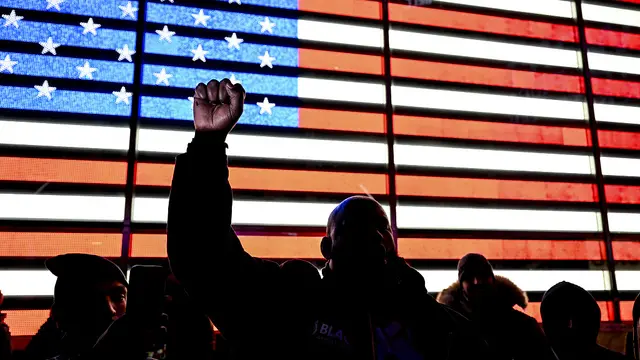Tyre Nichols, a 29-year-old Black man, was beaten to death by five police officers charged with second-degree murder. A chilling video of the incident was released by Memphis City, sparking uproar over police brutality in the U.S. The fatal police beating has further exposed deep-rooted racial problems and the deep-seated issues in the American criminal justice system.
More than a racial issue, the incident serves as a harsh reminder of the significant structural problems that still exist within the policing system in the country, alongside the urgent need for reforms. Cases such as the killing of Tyre King and Tyre Nichols by Black police officers demonstrate that anti-Black sentiment is a pervasive cultural issue that affects individuals of all races and ethnicities.
Racial problems in U.S. policing are systemic discrimination and bias that some communities of color, particularly Black Americans, experience at the hands of law enforcement. These issues are rooted in the country's history of slavery, racial segregation, and ongoing structural inequalities in education, employment, and housing. They manifest in several ways, including racial profiling, excessive use of force, coinciding with arrests and incarceration.
The events of racial injustice in policing in the United States have brought to light deep-rooted structural problems within the criminal justice system. The murders of George Floyd, Breonna Taylor, and countless other Black Americans at the hands of law enforcement have fueled a nationwide movement calling for meaningful reform. Even with the widespread protests against police brutality and racism in 2020 following the death of George Floyd, the number of people killed by the police in 2022 reached a decade high at 1,186.
The issues can be traced back to the systemic racism embedded in society for centuries. From the days of slavery to the modern-day criminal justice system, Black Americans have been disproportionately targeted, arrested, and imprisoned. The result is an inherently biased system against Black people, which is more likely to view them as criminals and less likely to hold police officers accountable for their actions.
The problem is not just limited to the actions of individual officers but extends to the policies and practices of law enforcement agencies. For example, "stop and frisk" tactics have disproportionately targeted Black and Latino communities. In contrast, the "war on drugs" has mass incarcerated people of color.
Research has shown that Black Americans are more likely to be stopped, searched, and arrested by the police than white Americans, even when controlling for other factors such as crime rates and neighborhood characteristics. For example, a study published in the journal Proceedings of the National Academy of Sciences in 2019 found that Black Americans were 2.5 times more likely to be stopped by police than white Americans. Another study by Harvard T.H. Chan School of Public Health found that Black Americans are 3.23 times more likely than white Americans to be killed by the police.
Similarly, as per the National Association for the Advancement of Colored People, a civil rights organization, a black person is five times more likely to be stopped without cause than a white person. It is also mentioned that the biases and attitudes of law enforcement and outdated legal precedents greatly influence the criminal justice system. This leads to significant racial disparities, negatively impacting and harming minority communities.
The Mapping Police Violence project has tracked police killings in the United States for a decade, and it highlights that Black people are 2.9 times more likely to be killed by police than white people in the U.S. The frequency of incidents varies by location and also the data collection method. Nonetheless, it's widely acknowledged that these incidents are frequently reported in the media. Moreover, despite the limited data, it demonstrates that Black Americans are disproportionately affected by police killings.
These issues are complex and multifaceted, and addressing them will require a comprehensive approach to managing individual biases and systemic inequalities. It will require changes to the policies and practices of law enforcement agencies, as well as a commitment to addressing the underlying societal issues that contribute to racial inequality. This will involve the implementation of community-based policing models, the diversification of law enforcement agencies, and investment in programs that address underlying issues of poverty, education, and economic opportunity.
Holding police accountable for abuse is rare in the U.S., and this lack of accountability often leads to a damaged system. Some solutions require increased training and accountability for officers, community policing programs, and the collection of more data on police interactions with the public.
Besides rising gun violence, police brutality is an issue that requires much more attention. It may be time for the U.S. to stop being nosy about other countries and put its house in order first.
(CGTN)
 简体中文
简体中文





